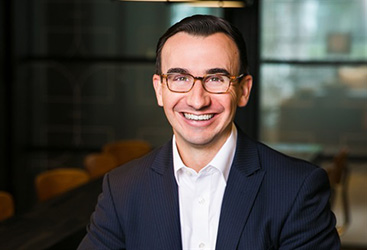Arlington, VA adapts to office market shifts by attracting global HQs, fostering innovation and diversifying business districts.

By Ryan Touhill, Director of Arlington Economic Development
The COVID-19 pandemic has drastically altered our expectations — of work environments, local governments, public spaces and much more. Cities and counties across the nation are now grappling with tough questions: What is next for offices? How do we adapt? And if not offices, then what?
Like many regions, the challenges facing Arlington, Va.’s office market are significant. An analysis conducted last year by Arlington Economic Development (AED) concluded that 40% of the rentable building area in Arlington — approximately 17 million square feet — is potentially at risk of long-term structural vacancy or functional obsolescence. According to CoStar Group, as of Q4 of 2023, the office vacancy rate is 22.1%, approximately nine million square feet of vacant space.
Despite this vacancy rate, Arlington has witnessed notable corporations establishing a more significant presence in recent years. CoStar Group, a prominent real estate information and analytics company (and 2024 Super Bowl ad standout), announced the move of its global headquarters to Arlington last month. Both Boeing and RTX (Raytheon) also recently announced moving their headquarters locations to Arlington. Then, of course, there is Amazon, which finished construction of the first phase of its second headquarters eight months ago following the announcement of Arlington as the winner of a nationwide HQ2 search in 2018. These recognizable, globally successful companies are opting to establish long-term roots in Arlington during a time when office spaces are sitting vacant for months at a time across the country. How and why?
In the case of CoStar, the company noted Arlington’s workforce, accessibility to two international airports, strong Metro system, high quality of life, business-friendly environment and dynamic urban centers as key factors in its decision to relocate. After all, CoStar promotes an in-office work culture where employees work onsite at least four days each week. This in-office element is crucial for CoStar’s culture and bottom line, but the relocation is beyond meaningful for Arlington. By simply introducing CoStar’s 650 new and existing, local workers to Arlington, this relocation will help local small businesses and add to the vitality of the Rosslyn neighborhood during its ongoing transformation into a mixed-use community.
We could rest comfortably on the heels of such monumental announcements, but like other localities across the country, we recognize the fundamental shifts occurring in the office market and understand the importance of adapting to new realities and continuing to innovate. In response to this, Arlington has launched the Commercial Market Resiliency Initiative (CMRI) to reimagine our business districts, while also positioning ourselves as a prime destination for future corporate headquarters. The goal of CMRI is simple: modernize Arlington’s regulations, practices and processes to ensure a nimbler response to economic shifts.
We started by expanding the number of allowable uses in our commercial spaces. By permitting new uses, the County encourages new and emerging business opportunities that may have been previously restricted in Arlington. This, in turn, diversifies our business districts, making them more attractive to workers, residents and visitors. In the past year, alone, we have seen the opening of animal boarding facilities and indoor recreation and entertainment, as well as initial interest in urban agriculture, breweries and distilleries.
Moving forward, CMRI will focus on additional regulatory reforms that will accelerate the repositioning, conversion and redevelopment of underperforming and under-utilized office buildings. We believe this is the most effective way to stabilize the office market, create value and enrich the overall urban experience in our community.
The success of CMRI lies in its ability to align Arlington’s economic development goals with the evolving needs of the modern workforce, all while fostering a dynamic and adaptable commercial landscape. Arlington aims to attract and retain high-quality talent, creating a ripple effect that benefits key industry sectors. This initiative is not merely a response to the current office vacancy challenge; rather, it is a forward-looking strategy that positions Arlington as a hub for innovation, collaboration and growth.
In line with this vision, Arlington continues to attract industry giants like CoStar. The County’s demonstrated ability to welcome and accommodate these high-profile companies speaks to our resilience and forward-thinking approach. CoStar’s decision is more than just a relocation; it represents a strategic investment in a community that provides the resources and environment necessary for global corporations to thrive.

As director of Arlington Economic Development, Ryan Touhill has extensive experience leading economic development agency operations and a proven track record of implementing local small business grants and economic recovery programs. Touhill has played a key role in fostering regional cooperation and attracting and retaining business in local and regional markets
Scott Ellyson, CEO of East West Manufacturing, brings decades of global manufacturing and supply chain leadership to the conversation. In this episode, he shares practical insights on scaling operations, navigating complexity, and building resilient manufacturing networks in an increasingly connected world.